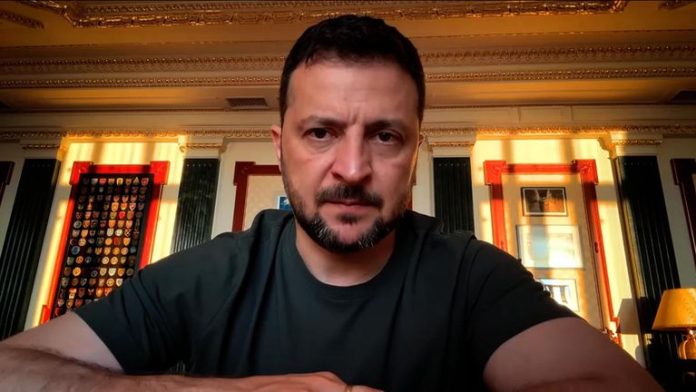Despite the Ukrainian army’s recent successes in its offensive against Russia, experts suggest that the attack may only achieve a “limited objective” and is unlikely to alter the overall dynamics of the conflict. The hope in Kyiv is that it will draw Russian troops away from other areas of the front, a goal that has yet to materialise, according to The Times.
By initiating the assault on the Kursk region, Ukrainian President Volodymyr Zelensky has made one of the most daring decisions since the onset of the war, as the leadership is willing to risk valuable soldiers and military equipment supplied by western allies to secure progress in this region. Ukraine’s recent move into the Kursk region caught Moscow off guard and surprised Kyiv’s western allies, including Washington, according to Michael Clarke and his analysis.
The operation was shrouded in secrecy; if Ukrainian leaders had sought prior approval from their western partners, they likely would have been denied, prompting them to forge ahead regardless, according to Clarke. As of now, Ukraine is banking on a successful campaign in the Kursk Region to divert Russian forces from other critical frontlines, such as Chasiv Yar and Pokrovsky area in the Donbas region, where Ukrainian troops are currently facing significant challenges due to the Russian advance. However, so far, the diversion has not occurred, and Russian forces continue to hold their ground.
Advisor to the head of the Office of the President of Ukraine, Mykhailo Podolyak, stated that the aim of the attack is to strengthen positions in negotiations. Clarke, in turn, stressed the step is self-assured and risky, emphasising that the attack on the Kursk region will not change the course of hostilities. Furthermore, Clarke highlighted a considerable level of risk associated with the proposed plan, suggesting that it may provoke unease in the West, particularly since NATO military equipment has essentially ended up on Russian ground.
Meanwhile, critics of President Zelensky contend that this represents a misuse of both soldiers’ lives and the military resources that the Ukrainian Armed Forces desperately require in the eastern front.
The future success of the operation hinges on the ability of the Ukrainian Armed Forces (AFU) to maintain control over the territory. According to Clarke, there are reasonable grounds to believe that Kyiv has made significant preparations, as experienced military units, numbering between 6,000 and 10,000 personnel from the 22nd and 88th mechanised brigades, alongside the 80th airborne assault brigade, joined the assault.
The operation commenced with a successful attack that utilised electronic warfare, which considerably weakened the Russian border forces and diminished the effectiveness of their drones. However, by Thursday, the active operations of the Ukrainian army began to wane. Clark remarked that a counteroffensive would not be sufficient to change the course of the war. Instead, military success will be gauged by how much it costs Moscow to regain its territory. If the conflict drags on and the price remains high, Ukrainian forces could potentially gain significant advantages in other areas.
